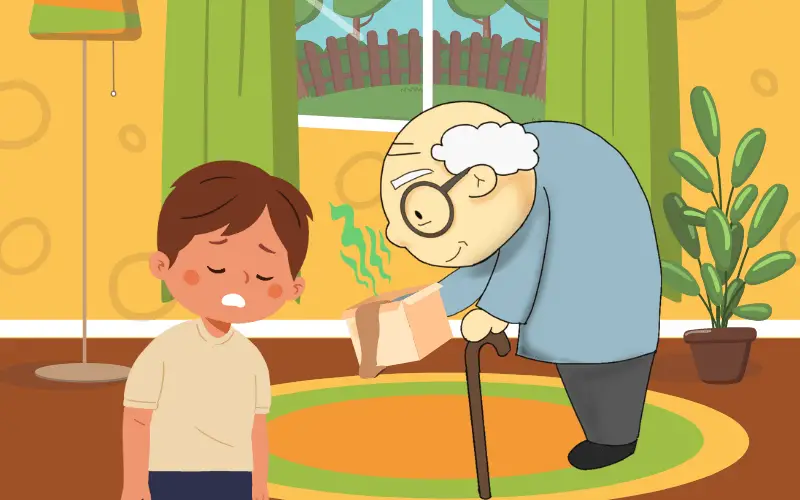
The holiday season is a time of joy, love, and of course, gift-giving. We eagerly search for the perfect presents to bring smiles to the faces of our loved ones. However, amidst the sea of cheerful surprises, there are some gifts that make us scratch our heads and wonder, “What were they thinking?” From bizarre and useless gadgets to downright inappropriate or offensive items, the world is not without its fair share of terrible holiday gifts. In this blog post, we’ll explore ten of the worst holiday gifts to give, offering a lighthearted take on what to avoid this gift-giving season. So, before you wrap up something that might elicit more groans than gratitude, join us on this amusing journey through The list of the 10 Worst Holiday Gifts to Give.
The list of the 10 Worst Holiday Gifts
10. Thoughtless Gift Cards

Why Thoughtless Gift Cards are Bad Gifts
Thoughtless gift cards, though a popular choice for many during the holiday season, can sometimes leave the recipient feeling a bit underwhelmed. While they do offer the advantage of flexibility, allowing the person to choose something they truly want, the key lies in selecting a gift card that aligns with the recipient’s interests and preferences.
When selecting a gift card, take a moment to consider the recipient’s hobbies, favorite stores, or personal tastes. If they are a bookworm, a gift card to a local bookstore or an online bookseller would allow them to select a title they’ve been longing to read. For the music enthusiasts, a gift card to a music streaming service or a record store would be a much-appreciated gesture.
Of course, there may be situations where the recipient’s preferences are unknown or it’s challenging to pinpoint a specific gift card that suits them perfectly. In such cases, it may be wise to accompany the gift card with a small, thoughtful item that complements their lifestyle or hobbies. For example, if you are unsure about their exact taste in books, pair the gift card with a cozy bookmark or a literary-themed mug to add a personal touch.
9. Gag Gifts that Miss the Mark

Why Gag Gifts are Bad Gifts
While gag gifts have a long-standing tradition of bringing laughter and amusement to holiday gatherings, it’s essential to exercise caution and consider the sensibilities of your audience. While some people may appreciate a well-executed prank or a lighthearted joke, others might find certain gag gifts inappropriate, offensive, or even hurtful.
The key to successfully navigating the realm of gag gifts is to know your audience well. Consider their personalities, senses of humor, and personal boundaries. What may be funny to one person could be offensive or uncomfortable to another. It’s crucial to strike a balance between humor and respect, ensuring that the gift brings joy rather than causing distress. Avoid gag gifts that touch upon sensitive subjects such as personal insecurities, health conditions, or cultural backgrounds.
Instead, opt for light-hearted, universally amusing gag gifts that are unlikely to cause offense. Go for items that are silly, playful, or nostalgic in nature. Consider items that evoke laughter through absurdity or unexpected twists. For example, a whimsical toy or a funny novelty item can generate smiles and amusement without causing discomfort.
8. Cheap Novelty Items

Why Cheap Novelty Items are Bad Gifts
Cheap novelty items may seem like a quick and amusing solution for holiday gifting, promising a few moments of laughter and surprise. However, their appeal often fades as quickly as it comes. These low-quality trinkets, such as a singing fish mounted on a plaque or a dancing flower, may elicit a chuckle upon unwrapping, but their novelty wears off rapidly, leaving them destined to gather dust on a shelf or be passed on to someone else.
Moreover, the accumulation of such novelty items can contribute to clutter and contribute to a throwaway culture. Instead of bringing genuine enjoyment or adding value to someone’s life, they often end up occupying valuable space or finding their way to the donation pile during spring cleaning sessions. This cycle of brief amusement followed by abandonment underscores the fleeting nature of these cheap novelty items.
When selecting gifts for your loved ones, it’s important to consider their long-term enjoyment and value. While a spontaneous laugh is appreciated, a gift that can be cherished or used repeatedly holds greater significance. Opting for items that align with the recipient’s interests, hobbies, or needs ensures a more meaningful and lasting connection.
While novelty items can still find a place in gift-giving, it’s advisable to invest in higher-quality options that offer more durability, functionality, or aesthetic appeal. Items that exhibit craftsmanship, uniqueness, or a personal touch have a higher chance of being appreciated and enjoyed beyond the initial surprise.
Read More Fun Facts
Learn more fun facts with Trivia Mastermind content.
7. Self-help Books

Why Self-help Books are Bad Gifts
Self-help books have gained popularity as individuals seek personal growth and self-improvement. However, when it comes to gifting these books, it’s important to approach the subject with sensitivity and respect. While self-improvement is indeed admirable, giving a book on weight loss, overcoming personal issues, or any other sensitive topic may not always be well-received.
Personal development journeys are unique and deeply personal. Each individual faces different challenges and has their own pace of growth. Gifting a self-help book with good intentions may unintentionally send a message that implies the recipient needs to change or improve in a specific area. This can potentially lead to discomfort or feelings of inadequacy, even if that was not the intention behind the gift.
Instead of gifting a self-help book focused on a particular issue, consider broader options that promote personal well-being, mindfulness, or inspiration. Books that offer uplifting stories, motivational quotes, or general tips for leading a fulfilling life can provide a positive and gentle nudge towards self-reflection and growth without imposing specific expectations.
If you still wish to give a self-help book, it’s essential to be mindful of the recipient’s interests, preferences, and needs. Take into consideration their existing interests or hobbies and select a book that aligns with those aspects. By doing so, you can ensure that the gift is thoughtful, supportive, and relevant to their individual journey.
6. Bathroom Scales

Why Bathroom Scales are Bad Gifts
The holiday season is a time of joy, celebration, and indulgence. It’s a time when people come together to enjoy delicious meals, treats, and the company of loved ones. However, amidst the festivities, it’s important to be mindful of the messages we send with our gifts. While bathroom scales may seem like a practical and innocuous item, gifting them can unintentionally send negative body image messages and dampen the joy of the holiday season.
Receiving a scale as a gift can be perceived as a subtle suggestion that one’s weight or appearance is a matter of concern. It may evoke feelings of self-consciousness, insecurity, or even disappointment during a time meant for happiness and relaxation. The focus of the holiday season should be on connection, love, and enjoyment, rather than on numbers on a scale.
Body image is a sensitive and complex topic for many individuals. It’s essential to promote self-acceptance, self-care, and positive body image, especially during a time when people are already bombarded with societal pressures and expectations. Gifting a bathroom scale runs the risk of unintentionally reinforcing harmful messages about weight, shape, and beauty standards.
Instead of gifting bathroom scales, consider options that promote well-being, self-care, and body positivity. Choose gifts that inspire healthy habits in a holistic manner, such as fitness equipment, workout gear, or wellness items that focus on overall health rather than solely on weight. Encourage activities that promote self-love, such as spa treatments, relaxation gifts, or items that promote mindfulness and self-care routines.
5. Pet-related Gifts for Non-pet Owners

Why Pet-related Gifts for Non-pet Owners are Bad Gifts
While pet-related gifts like catnip or dog toys may appear to be a considerate gesture, they can inadvertently miss the mark when given to someone who doesn’t own a pet. This well-intentioned gift may unintentionally highlight a lack of knowledge about the recipient’s lifestyle and interests. For non-pet owners, receiving a pet-related gift might leave them feeling confused or unsure of what to do with the item. It’s essential to remember that not everyone has a furry companion at home, and assuming otherwise may lead to a disconnect between the gift and the recipient’s preferences.
Instead of pet-related gifts, it’s best to explore alternative options that cater to the recipient’s hobbies, interests, or personal tastes. Consider their passions, such as books, music, art, sports, or any other activities they enjoy. By choosing a gift that aligns with their individual interests, you demonstrate thoughtfulness and consideration.
If you’re uncertain about the recipient’s preferences, opt for more versatile gifts that can be enjoyed by a wide range of individuals. Examples could include gourmet food baskets, spa sets, candles, or experiences such as concert tickets or vouchers for a favorite restaurant. These options provide flexibility and allow the recipient to enjoy the gift in their own unique way.
By choosing gifts that reflect the recipient’s interests and hobbies, you not only show a deeper understanding of their personality but also demonstrate that you’ve taken the time to consider their individual preferences. This thoughtful approach will make the gift more meaningful and enjoyable, fostering a stronger connection between the giver and the recipient.
Play Trivia!
Challenge yourself and play trivia questions with answers and explanations.
4. Cleaning Supplies

Why Cleaning Supplies are Bad Gifts
Maintaining a clean and tidy home is undoubtedly important, but when it comes to gift-giving, cleaning supplies may not always be the most suitable choice. While practical and necessary, these items can inadvertently convey the wrong message and dampen the holiday spirit. It’s best to save such items for a different occasion.
Receiving cleaning supplies as a gift can unintentionally imply that the recipient’s home is not up to par or that they need assistance in keeping it clean. This may inadvertently offend or cause embarrassment, as it suggests that their living space is not meeting certain standards. The holiday season is a time of joy, celebration, and relaxation, and a gift that focuses on chores may detract from the festive atmosphere.
Instead of cleaning supplies, explore alternative options that cater to the recipient’s interests or provide a sense of enjoyment. Consider their hobbies, such as books, art supplies, gardening tools, or kitchen gadgets. Choose items that align with their passions and contribute to their happiness and well-being. By selecting a gift that reflects their personality, you demonstrate care and understanding.
If you’re uncertain about the recipient’s preferences, opt for gifts that offer experiences or create lasting memories. Tickets to a concert, a spa day, a cooking class, or a weekend getaway can provide opportunities for relaxation, adventure, and rejuvenation. These gifts go beyond material objects and offer moments of joy and connection.
3. Socks and Underwear

Why Socks and Underwear are Bad Gifts
When it comes to holiday gifts, we often seek items that evoke a sense of excitement and delight. While socks and underwear are undoubtedly practical and necessary, they may not necessarily provide the “wow factor” that we associate with the holiday season. Gifting these essentials, though appreciated for their utility, may not evoke the same level of enthusiasm or joy as other more unexpected and thrilling presents.
That being said, there are ways to make even these everyday items more exciting and thoughtful. Consider choosing socks or underwear that have a unique design or pattern, reflecting the recipient’s interests, hobbies, or favorite colors. This small touch can add a personal and playful element to an otherwise practical gift. For example, if the recipient is a fan of a particular sports team or a lover of whimsical patterns, selecting items that incorporate these elements can make the gift more memorable and enjoyable.
Alternatively, you can pair socks or underwear with other items to create a more comprehensive and thoughtful gift. For example, include a cozy pair of socks alongside a book or a DVD of their favorite movie for a cozy night in. Combine underwear with a luxurious bathrobe or a set of scented candles for a relaxing self-care package. By combining these essentials with complementary items, you elevate the overall gift and demonstrate your attention to detail and consideration for the recipient’s needs and preferences.
2. Re-gifted items

Why Re-gifted items are Bad Gifts
Receiving a gift is often accompanied by a sense of excitement and anticipation. However, when that gift turns out to be a re-gifted item, the initial joy can quickly be replaced by disappointment or a feeling of being undervalued. Re-gifting occurs when the giver passes on an item they received as a gift, indicating that little thought or effort was put into choosing something specifically for the recipient.
Gift-giving is an opportunity to express care, appreciation, and understanding for the recipient. It’s a chance to show that their happiness and satisfaction matter to us. By re-gifting, we risk sending the message that we didn’t prioritize their individuality and that they were not deserving of a gift carefully chosen with them in mind.
To avoid the pitfalls of re-gifting, it’s important to put thought and effort into selecting a gift that is meaningful and tailored to the recipient. Consider their interests, hobbies, and preferences. Think about what would bring them joy or enhance their life in some way. It doesn’t have to be an extravagant or expensive gift; the key is to show that you’ve considered their unique qualities and have taken the time to choose something special.
If you find yourself with an item that you don’t want or need, it’s best to find another use for it rather than passing it off as a gift to someone else. Donate it to a charity, give it to someone who might genuinely appreciate it, or repurpose it for another purpose. By doing so, you can ensure that the act of gift-giving remains a meaningful and thoughtful gesture.
1. Fruitcake

Why Fruitcake is a Bad Gift
Ah, fruitcake, the quintessential holiday treat that evokes a wide range of reactions. While it holds a place in many traditions, it’s no secret that fruitcake often receives mixed reviews. Some may savor its dense texture and rich combination of dried fruits and nuts, while others find it less than appealing and, dare we say, downright unappetizing.
The reputation of fruitcake as a less-than-desirable gift is rooted in its unique characteristics. The dense, heavy texture and the abundance of dried fruits and nuts can be an acquired taste. The combination of flavors can vary widely, and some fruitcakes may lean towards being overly sweet or excessively boozy. These factors contribute to its polarizing nature, where some individuals eagerly anticipate a slice while others discreetly pass it along.
The longevity of fruitcake, with its ability to last for months or even years, adds another layer to its notoriety. It often becomes a running joke or a symbol of holiday regifting. The sight of a fruitcake being passed from person to person, year after year, has become a familiar trope in pop culture. This ongoing cycle of regifting reflects the collective sentiment that fruitcake may not be the most cherished or desired gift.
That being said, it’s essential to acknowledge that taste preferences vary greatly among individuals. While fruitcake may not be everyone’s cup of tea, there are undoubtedly those who genuinely enjoy and appreciate this festive delicacy. It holds a special place in the hearts of some, tied to nostalgic memories or cultural traditions. For them, receiving a thoughtfully made fruitcake can bring a sense of warmth and connection to holiday traditions.
Conclusion
In conclusion, the holiday season is a time of joy, love, and generosity. When it comes to gift-giving, it’s important to remember that the thought and effort put into choosing a present can make all the difference. While it’s true that everyone’s tastes and preferences may vary, there are certain gifts that tend to miss the mark more often than not. From thoughtless gift cards to re-gifted items, cheap novelty items to self-help books, and gag gifts that may offend, it’s crucial to consider the recipient’s feelings and interests when selecting a gift. By avoiding these worst holiday gifts, we can ensure that our presents bring genuine happiness and demonstrate our care and thoughtfulness.
Read More Fun Facts
Learn more fun facts with Trivia Mastermind content.
Play Trivia!
Challenge yourself and play trivia questions with answers and explanations.



